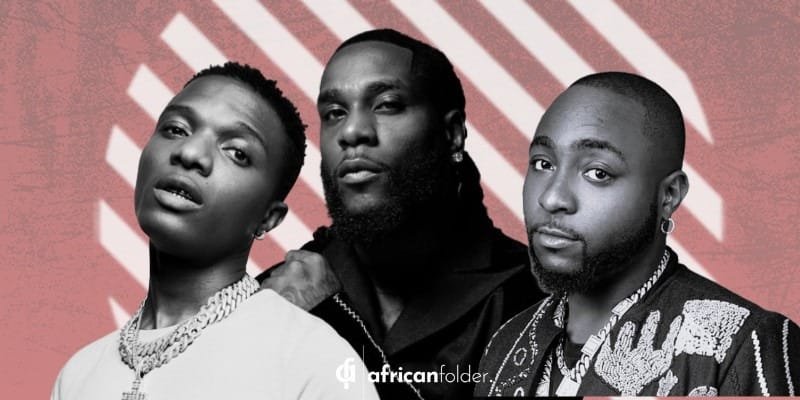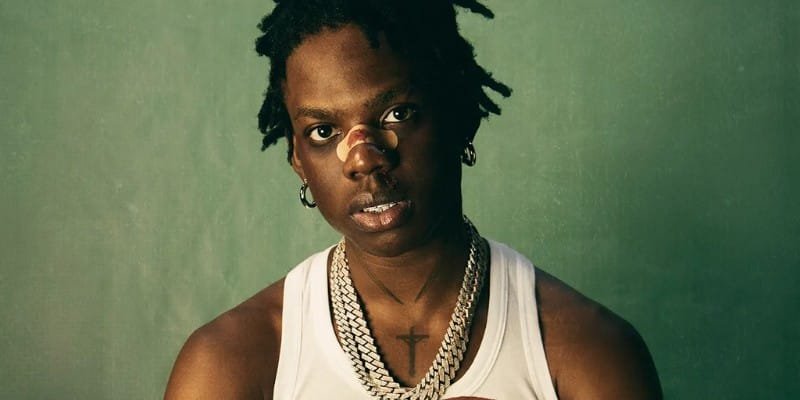Throughout 2024, Rema has been on a mission to proclaim to anyone who cares to listen that it’s no longer a triumvirate, it’s a tetrad, and he has boldly declared that he is the fourth member. On HEHEHE, the second lead single off his sophomore album HEIS, he raps;
“H-I-M position can’t be vacant
No more big three; there’s now a big four
People go para but what for?
They go say I don’t deserve it but that is an insult.”
Even though this writer disagrees with his assertion, he sees and understands his point. What Rema has done and his impact on Afrobeats since his debut in 2019 is genuinely unbelievable. His accomplishments are truly remarkable. He has dominated music streaming platforms, securing the most streamed African album and song on Spotify, surpassing an impressive 1 billion streams. On the Billboard charts, Rema has made history as the first African artist to sustain a year-long presence on the Billboard Hot 100.
His global hit single Calm Down reached unprecedented heights, peaking at number 3—the highest charting Nigerian song on the Billboard Hot 100. He also has the most certified African song, the most viewed Nigerian music video on YouTube, the first Afrobeats song to reach #1 on US Radio Songs, and the longest-charting African artist on the Billboard US Afrobeats Songs Chart. He was the inaugural winner of the Best Afrobeats award at the 2023 MTV VMAs, a category established largely due to the incredible success of his hit single Calm Down.
When you consider all these insane accomplishments, it’s easy to understand Rema’s thought process as to why he believes he deserves to be recognised as one of Afrobeats’ elite Big 4. With trailblazing chart successes, record-breaking streaming numbers, genre-pushing artistry, and unprecedented global recognition, Rema does make a compelling case.
However, a couple of factors undermine his claim and, in this writer’s opinion, invalidate his argument regardless of how convincing it seems on first observation.
First of all, he is not from that generation. The trio typically includes artists from the same generation or era and is determined by commercial success, impact, and longevity.

Wizkid, Burna Boy, and Davido hail from a completely different era from Rema. Commercially, Rema might hold his own, but he falls short in impact and sustained longevity. Davido, Wizkid, and Burna Boy have maintained relevance for over a decade and have demonstrated remarkable staying power at the top of the food chain. Regardless of the fast-paced and ever-changing nature of the music industry, these three have consistently delivered and maintained a high level of quality and output whilst adapting and evolving to stay current and satisfy their ever-expanding audience.
Their impact is also evident in the numerous artists—Rema included—who have followed in their footsteps, drawing inspiration from their styles and sound. Whilst Rema’s artistic impact is already being felt, his influence is still emerging and pales in comparison to the big three.
This writer believes it is presumptuous—and slightly disrespectful—for Rema to equate himself to the trio given that his success is largely built upon the foundation laid by their tireless efforts and pioneering achievements in popularising Nigerian pop music globally.
Rema’s comparison overlooks the significant gap in longevity, depth, and breadth of impact between himself and the trio. Davido, Wizkid, and Burna Boy have spent years pushing boundaries, and breaking down barriers, ultimately establishing Afrobeats as a major force in global music. Their influence extends beyond chart-topping hits to shaping the sound, style, and cultural relevance of contemporary African music. Rema, making direct comparisons undersells the trio’s pioneering contributions.
Furthermore, Rema’s insistence on inserting himself into the triumvirate of a different era when he belongs in the big three of his generation is quite confusing. Not only does he belong in the big three of his generation, he is outright number one. Why then is he chasing a spot among the old guard when he is the undisputed champion of his generation?
Rema should celebrate his status as a trailblazer and the standard-bearer of his own generation while forging a unique path for his contemporaries and the generation following his footsteps. Just like Wizkid, Davido, and Burna Boy did for him and every other artist in his generation.
And with that, Siri, plays the undisputed album of the year—Rema’s HEIS.














